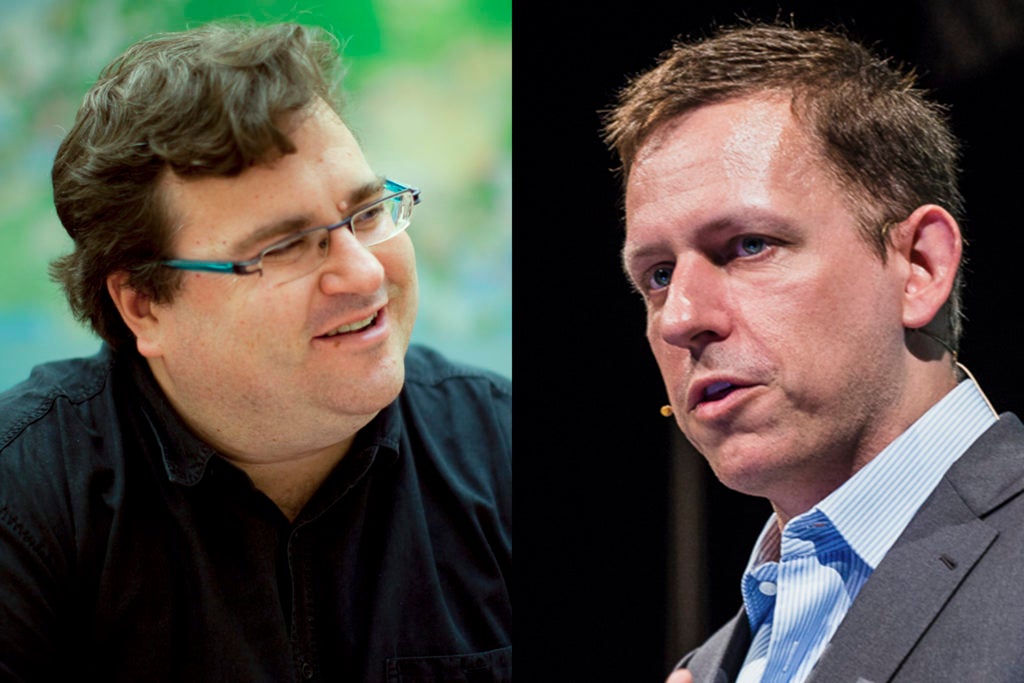Cardinal Conversations exposes campus to diverse views

An initiative that kicks off this month will address some of society’s most complex issues and expose the campus to a wide range of perspectives and views.
Cardinal Conversations is an initiative among Stanford and its Hoover Institution and Freeman Spogli Institute for International Studies that is designed to be a thought-provoking community discussion of key issues across the political spectrum.
Cardinal Conversations’ first event takes place on Jan. 31 in the David and Joan Traitel Building at the Hoover Institution. Entrepreneurs and Stanford alumni Reid Hoffman and Peter Thiel will join Stanford’s Niall Ferguson to discuss the subject of “Technology and Politics.”
Ferguson, a senior fellow at the Hoover Institution, helped create the initiative along with political science Professor Michael McFaul, director of the Freeman Spogli Institute and a Hoover senior fellow. Ferguson said the goal is for all members of the Stanford community, especially undergraduates, to encounter firsthand “leading public intellectuals of the day, hear them debate the great issues of our time,” and participate in and continue these discussions.
“The idea originated with a diverse group of undergraduates, with views ranging across the political spectrum, all of whom felt that more could be done to air contested issues at Stanford,” he said.
The plan is to make Cardinal Conversations a continuing series.
The students on the steering committee that chose the topics for Cardinal Conversations belong to a broad range of organizations across the political spectrum, including some from the Associated Students of Stanford University (ASSU) and other student groups active in fostering a diversity of views on campus, such as the Stanford Political Union and Stanford in Government.
Justice Tention-Palmer, president of the ASSU and a senior in mathematical and computational sciences, said, “Stanford hosts noteworthy speakers on campus to share and spread their ideas. Often these ideas are questioned and challenged by students, yet there no clear forum for discussion.”
Anna Rose Mitchell, a junior in computer science, said that Cardinal Conversations hopes to encourage serious grappling with ideas on Stanford’s campus.
“Open-mindedness to the ideas of our political opposition will be crucial to repairing America’s extreme polarization,” she said.
Other confirmed conversations include a Feb. 22 event with Stanford political scientist Francis Fukuyama, director of the Freeman Spogli Institute’s Center on Democracy, Development, and the Rule of Law, and author and political scientist Charles Murray on “Inequality and Populism”; an April 9 event with journalist and author Anne Applebaum and broadcaster Ted Koppel on the topic of “Real and Fake News”; and a May 23 conversation with philosopher Christina Sommers and journalist Andrew Sullivan on “Sexuality and Politics.”
